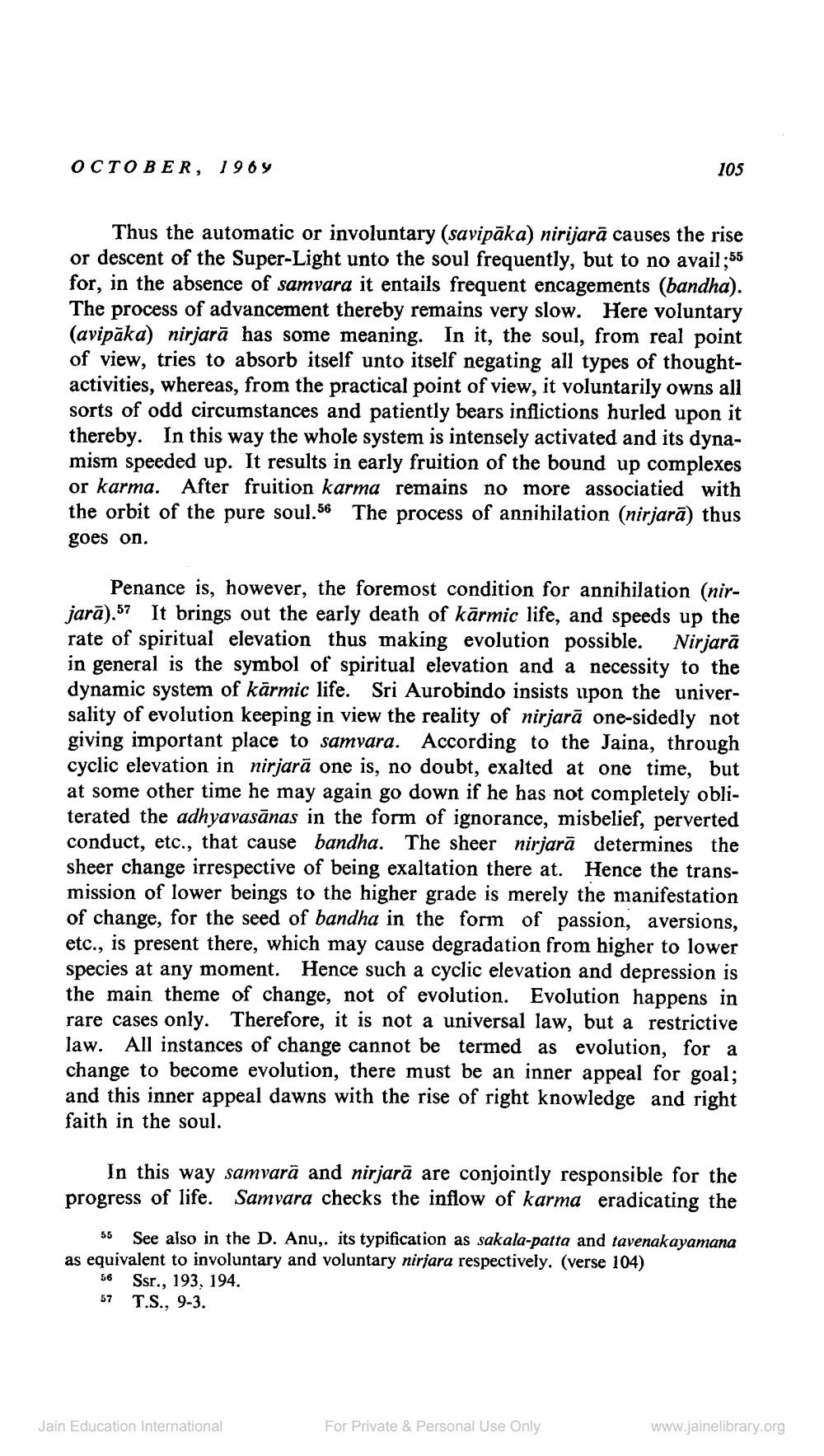________________
OCTOBER, 1969
Thus the automatic or involuntary (savipäka) nirijarā causes the rise or descent of the Super-Light unto the soul frequently, but to no avail;55 for, in the absence of samvara it entails frequent encagements (bandha). The process of advancement thereby remains very slow. Here voluntary (avipāka) nirjarā has some meaning. In it, the soul, from real point of view, tries to absorb itself unto itself negating all types of thoughtactivities, whereas, from the practical point of view, it voluntarily owns all sorts of odd circumstances and patiently bears inflictions hurled upon it thereby. In this way the whole system is intensely activated and its dynamism speeded up. It results in early fruition of the bound up complexes or karma. After fruition karma remains no more associatied with the orbit of the pure soul.56 The process of annihilation (nirjarā) thus goes on.
57
Penance is, however, the foremost condition for annihilation (nirjarā).5 It brings out the early death of karmic life, and speeds up the rate of spiritual elevation thus making evolution possible. Nirjară in general is the symbol of spiritual elevation and a necessity to the dynamic system of karmic life. Sri Aurobindo insists upon the universality of evolution keeping in view the reality of nirjarā one-sidedly not giving important place to samvara. According to the Jaina, through cyclic elevation in nirjarä one is, no doubt, exalted at one time, but at some other time he may again go down if he has not completely obliterated the adhyavasānas in the form of ignorance, misbelief, perverted conduct, etc., that cause bandha. The sheer nirjara determines the sheer change irrespective of being exaltation there at. Hence the transmission of lower beings to the higher grade is merely the manifestation of change, for the seed of bandha in the form of passion, aversions, etc., is present there, which may cause degradation from higher to lower species at any moment. Hence such a cyclic elevation and depression is the main theme of change, not of evolution. Evolution happens in rare cases only. Therefore, it is not a universal law, but a restrictive law. All instances of change cannot be termed as evolution, for a change to become evolution, there must be an inner appeal for goal; and this inner appeal dawns with the rise of right knowledge and right faith in the soul.
In this way samvarā and nirjară are conjointly responsible for the progress of life. Samvara checks the inflow of karma eradicating the
55
See also in the D. Anu,. its typification as sakala-patta and tavenakayamana as equivalent to involuntary and voluntary nirjara respectively. (verse 104)
Ssr., 193, 194.
T.S., 9-3.
105
56
57
Jain Education International
For Private & Personal Use Only
www.jainelibrary.org




